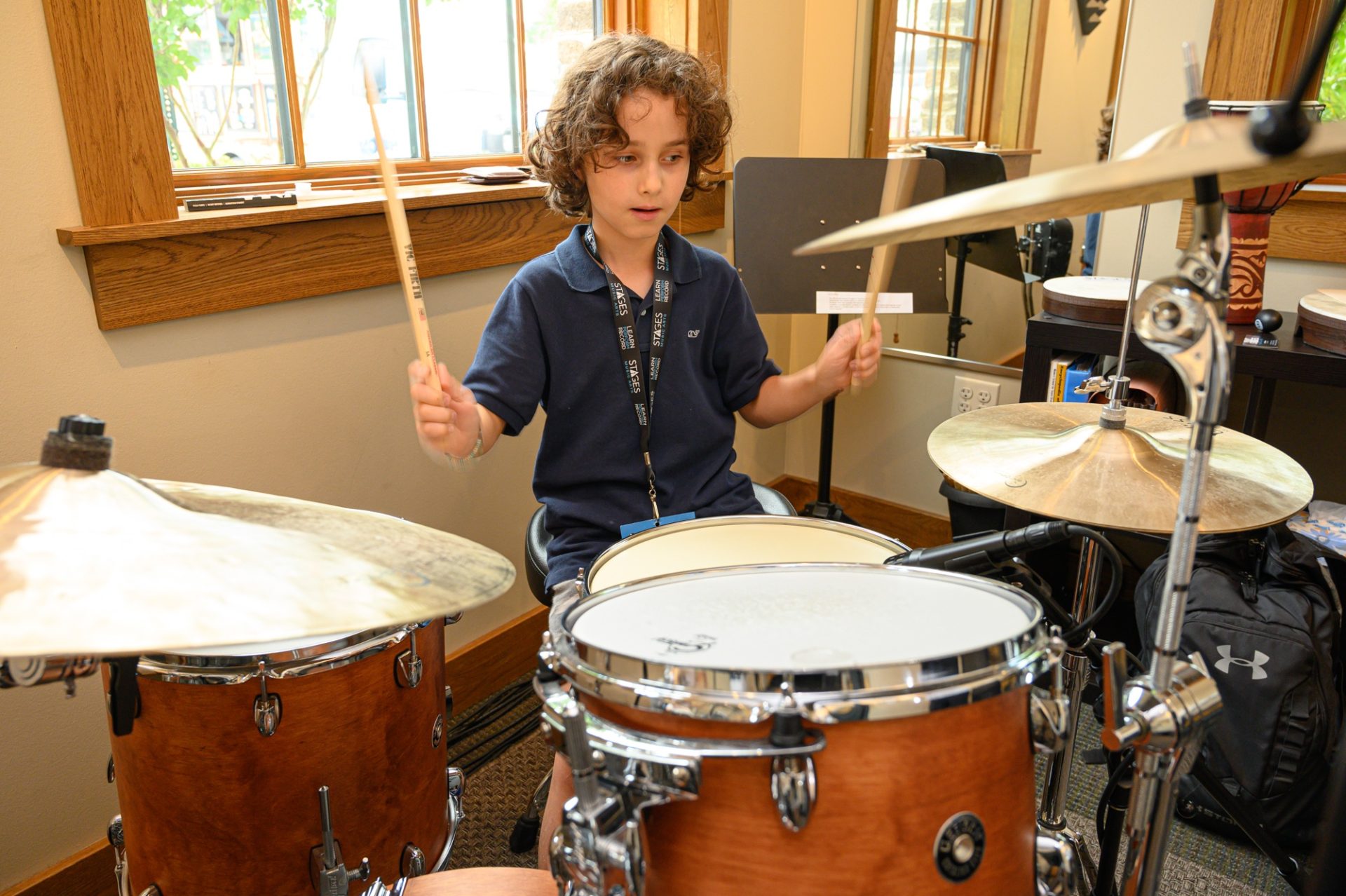10 Ways Music Education Helps Your Child Thrive


The study of music is an essential part of a well-rounded education. Research has found that music education enhances a multitude of skills that children (and adults!) use in all areas of school and life. A child learning about music must utilize multiple skill sets simultaneously – gross and fine motor skills, observing, listening, reacting, communicating and more. Let’s break down 10 ways music education helps your child thrive.
At Stages Music Arts, we are driven by our passion to help students realize their potential and become the best version of themselves artistically, academically and socially!
Check out these 10 ways studying music can help your child grow and thrive!
Learning to play music is a challenging task that requires patience, focus and sustained effort to see results. Music education teaches children to delay gratification and the value of perseverance in achieving challenging goals.
Music education exercises the memory center of the brain, as students must be able to read music by sight, play the proper notes on their instrument or recall lyrics.
Playing a musical instrument requires a student to read and play the correct notes through specific hand motions such as hitting keys, strumming strings, closing valves or other precise actions to produce exact sounds – improving dexterity and hand-eye coordination.
People who study music have been found to have higher levels of neural activity and grey matter in their brains, which is directly tied to intelligence and problem solving skills. Simply put, when you play an instrument, you use more of your brain, which strengthens connections and the ability to solve complex problems.
Musicians must carefully tune into tempo, dynamics, tuning, and harmonies. This helps auditory development in the brain and teaches you how to sense emotions, express yourself and respond to others with greater depth and understanding.
Many musical concepts have mathematical counterparts. When a child spends time learning about rhythm, they are learning to count, divide, multiply and use logic to methodically work through a piece of music.
Playing and listening to a favorite song can lift your mood and create feelings of relaxation and happiness. Creating music allows students to immerse themselves in an activity that is calming and soothing – improving their ability to process emotions and manage stress.
Music nurtures kids’ imagination and creative side, which helps them become innovators. Learning to play music cultivates originality, flexibility and artistic vision.
Music makes your kid excited and happy, enhances their appetite for things that bring them joy and for the friends you meet along the way, creating a valuable feeling of community and belonging.
Music allows students to try something new and challenging and develop confidence as they master singing or playing an instrument. Music education encourages children to take risks, stretch beyond their comfort zone and learn that they can do hard things!
Did you know we have a referral program? Share this blog with a friend and if they join the Stages Academy, you BOTH receive a $50 credit towards lessons.
Sign up with your email address to receive news and updates.